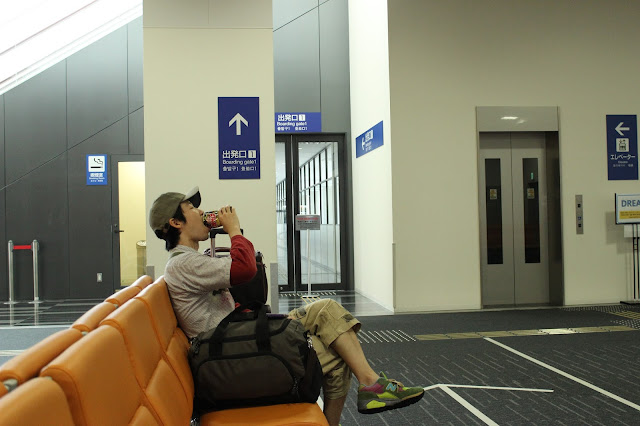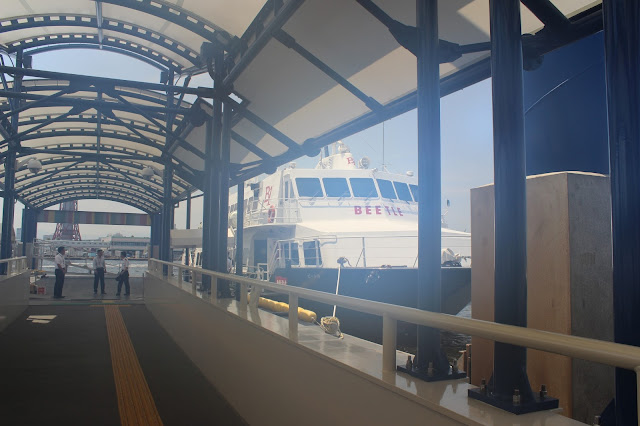Eagle-eyed women and smirking men stand near their stalls, verbally lassoing suckers and sapheads as they stroll by: "Hey, mister, you want medallion? Or maybe coin purse? Hey, look, nice deck of cards! I give you special deal!" The stuff they're hawking looks even cheaper than Insadong and is equally pricy.
For the scorpions, of course.
Nobody in China eats scorpions on a stick. The food stalls in Donghuamen are just as much a part of the tourist trap as the souvenir-mongers selling decks of Chinese emperor cards and laser pointers and faux-jade figurines.
But you know who does eat scorpions?
Me, that's who. So, on our first night in China, we marched a few of Beijing's long blocks south from the Novotel Xin Qiao and straight into Donghuamen's profiteering heart. We bellied up to a visually challenging scorpion-and-starfish stall near a bunch of trash cans that reeked to high heaven.
Having survived this little preview, I prepared myself and dove in headfirst. And this was the result:
Let's settle the bet now: they weren't alive when I ate them. The scorpion-monger dipped the stick into a vat of boiling oil, lightly killing the arachnids before they ever got near my mouth. He also salted them up plenty, which explains my popcorn comment in the second video.
One foreigner whose accent I couldn't place (southern European, if I had to guess) walked up to us and asked if he could watch as I ate. I told him, sure, heck, why not? He stood there, a half-amused, half-revolted grin on his face as I bolted these suckers down. It's him I'm speaking to in the video when I say "You should try them."
And then I was done. Three scorpions down. An item on the bucket list scratched off. I returned to the hotel and slept...not very deeply, 'cause the mattress was harder than a slab of jade.
Next up: TIANANMEN SQUARE. In the rain.











.svg.png)





































